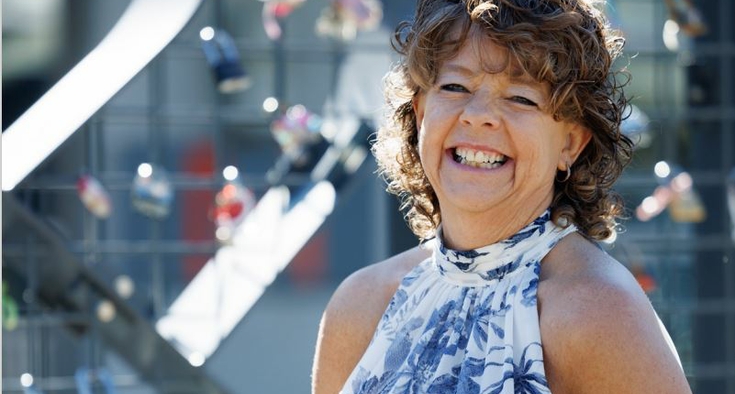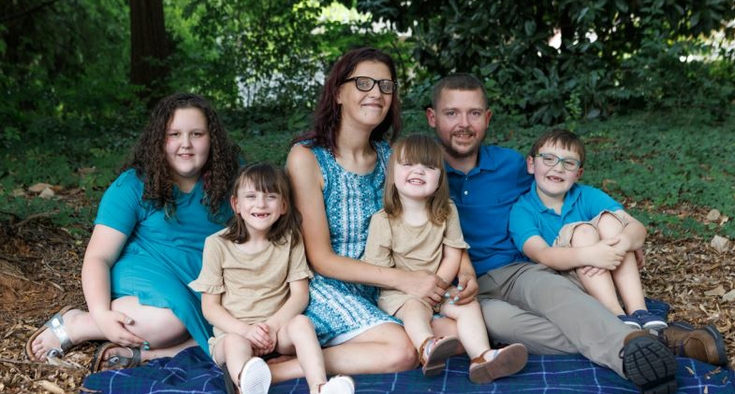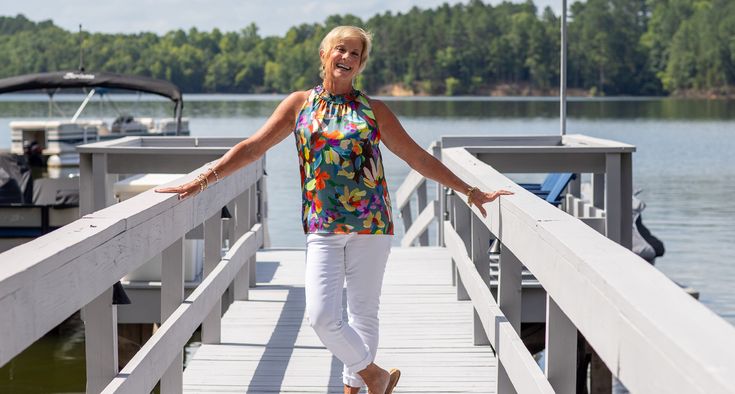Editor’s note: This is one in a series of stories exploring the survivorship journeys of Novant Health Cancer Institute patients. We celebrate our survivors and share their stories to showcase how surviving – and thriving – after a cancer diagnosis is possible. You’ll find all the stories here.
Vanessa “Lynn” Hopkins, 56, doesn’t take anything for granted after her challenging cancer journey.
She had been the epitome of good health. She worked out daily and enjoyed outdoor activities such as hiking. Then, one day in 2021 she was at work and felt a nagging pain in her stomach. It went away but came back and gradually worsened.
Lynn went to urgent care and was directed to Novant Health Rowan Medical Center where she was admitted overnight to run tests. “The good news was that my bloodwork looked really good,” said the then-53-year-old. “I had the bloodwork of a 30-year-old athlete.”
She was released from the hospital the next day but needed a colonoscopy. That’s when her doctor found three masses – one of which looked suspicious. In March 2021, Lynn was diagnosed with stage 3 colorectal cancer.
“I didn’t ask a lot of questions because this was like the week after (being in the hospital),” she said. “I was still in shock.”
Supportive cancer care throughout your journey.
Her oncologist initially recommended continuous chemotherapy for six weeks, followed by radiation therapy every weekday for six weeks. In preparation, Lynn had a chemo port implanted but soon after experienced complications. Chemo ports are small devices that act as a sort of lifeline for patients receiving chemotherapy. They help deliver medications directly to the bloodstream, but they can sometimes cause problems.
“I kept feeling like I had a set of bricks on my chest,” she said. “I couldn’t breathe.”
A chest X-ray showed the port had collapsed one of her lungs, and Lynn needed immediate corrective surgery. A few days later, she started chemotherapy at the Novant Health Wallace Cancer Institute in Salisbury, North Carolina.
Three weeks into her treatment, the port stopped working entirely, so she was switched to chemo pills. She completed a tough course of radiation and then had another round of chemotherapy spanning four-and-a-half months.
Since Lynn’s cancer was stage 3, with seven lymph nodes affected, doctors advised tackling it aggressively.
Her second treatment round meant a cocktail of three chemotherapy drugs. Unfortunately, her port still wouldn’t cooperate, so the medication was administered through a catheter called a PICC line – a thin, soft tube inserted directly into a vein.
During that round, Lynn felt sick all the time and was losing weight. Marinol helped her regain an appetite. She had another colonoscopy in October and surgery to remove the malignant tumor in November. A portion of her colon was removed, and she would need to use an ileostomy bag for six weeks.
She said her doctors were surprised at how quickly she healed – and how she managed to stay positive through it all.
“It’s just my nature,” Lynn said. “I talked to everybody, but I would always thank them for everything they’ve done for me.”
In December 2021, her colon was reattached, and she began a new year knowing “there were no more surgeries ahead.” Today, Lynn has a new lease on life – and so much to live for. “I am happy every day to wake up,” she said. Lynn’s three grandchildren play sports, so she spends a lot of time at their baseball and basketball games. Her youngest son also plays college baseball.
In her free time, she likes to shoot pool. These days, she’s more intentional about visiting with family and friends, too.
She admits to missing her thick, straight hair that now looks much curlier with more gray strands. And while having cancer may have changed her appearance, she said that it shifted her perspective in a good way. “Cancer does change people, but it’s up to you how it changes you,” she said. “Don’t let it win.”








